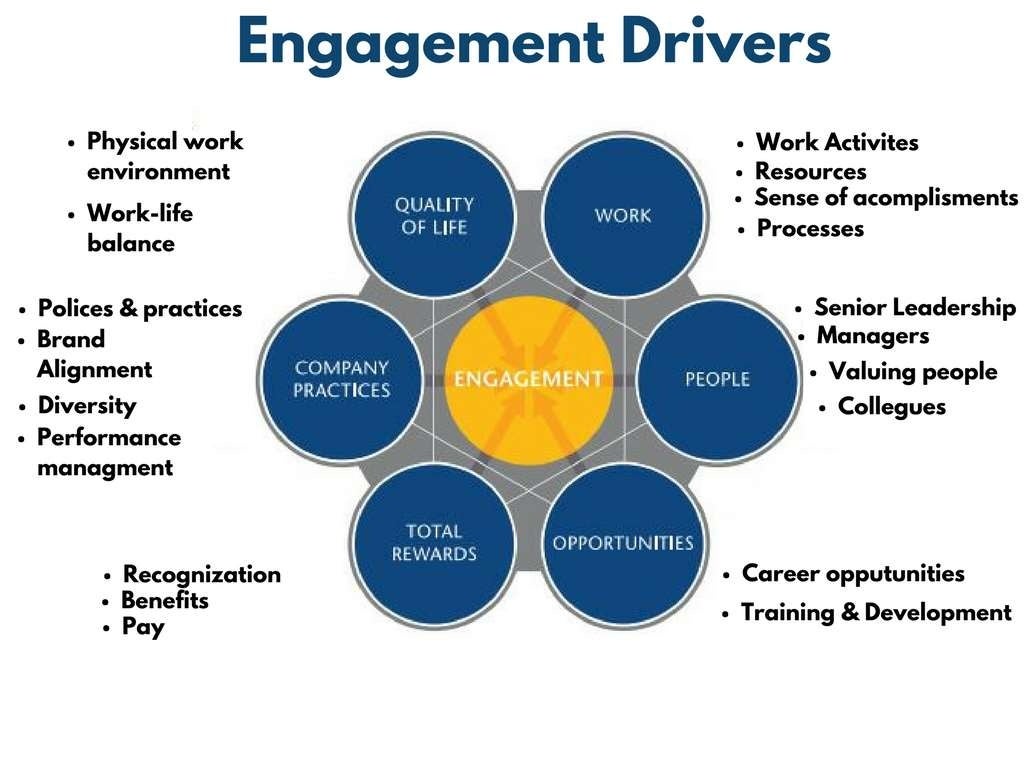The Importance Of Middle Management: A Key To Employee Engagement And Business Growth

Table of Contents
Bridging the Gap: How Middle Management Connects Leadership and Employees
Middle managers play a critical role in translating the overarching strategic vision of senior leadership into actionable, day-to-day tasks for employees. Without effective middle management, top-level strategies often remain abstract and fail to inspire or motivate the workforce. This disconnect can lead to decreased productivity, low morale, and ultimately, hinder business growth. Effective middle managers are masters of communication, ensuring clear and consistent messaging flows seamlessly throughout the organization.
- Translates complex strategies into achievable goals: They break down large, complex projects into smaller, manageable tasks, making them easily understandable and achievable for individual team members.
- Provides regular performance feedback and coaching: They offer regular, constructive feedback, guiding employees towards improvement and fostering a culture of continuous growth. This includes both formal reviews and informal coaching moments.
- Acts as a liaison between upper management and employees: They serve as a vital communication channel, conveying employee concerns to upper management and explaining leadership decisions to their teams, ensuring transparency and understanding.
- Identifies and addresses employee concerns promptly: By being readily available and approachable, middle managers can quickly address concerns, preventing minor issues from escalating into major problems.
Fostering Employee Engagement Through Effective Middle Management
Employee engagement is undeniably linked to business success. Highly engaged employees are more productive, creative, and committed to their organizations. Supportive and empowering middle management is a key driver of this engagement. When middle managers foster a positive and inclusive work environment, employees feel valued, respected, and motivated to contribute their best work.
- Mentoring and development opportunities for team members: Investing in the growth of their team members demonstrates a commitment to their success, boosting morale and loyalty.
- Creating a positive and collaborative work environment: A positive work environment, characterized by mutual respect and teamwork, fosters creativity and productivity. Middle managers set the tone for this environment.
- Recognizing and rewarding employee contributions: Acknowledging accomplishments, both big and small, significantly boosts morale and reinforces positive behaviors.
- Promoting work-life balance and employee well-being: Supporting employees in maintaining a healthy work-life balance demonstrates care and understanding, leading to increased loyalty and reduced burnout.
- Encouraging open communication and feedback: Creating a culture of open dialogue ensures that employees feel heard and valued, fostering trust and improving teamwork.
Driving Business Growth Through Middle Management Excellence
Competent middle management directly impacts a company's bottom line. Their ability to improve efficiency, boost productivity, and identify areas for improvement significantly contributes to profitability and sustained growth. They are not just managers; they are strategic partners in achieving organizational objectives.
- Improved team performance and productivity: Through effective leadership, they drive higher team performance and increased productivity, resulting in better overall organizational outcomes.
- Effective project management and execution: They excel at planning, organizing, and executing projects efficiently and effectively, ensuring timely completion and high-quality results.
- Identifying and implementing process improvements: They constantly seek ways to improve workflows, eliminate inefficiencies, and streamline operations, leading to cost savings and increased productivity.
- Driving innovation and creativity within teams: They foster a culture of innovation by encouraging creative problem-solving and empowering team members to contribute new ideas.
- Contributing to strategic planning and execution: Their understanding of both the strategic goals and the day-to-day operations allows them to contribute effectively to strategic planning and execution.
Identifying and Developing High-Performing Middle Managers
Investing in the selection, training, and development of effective middle managers is a crucial investment in the overall success of the organization. Identifying individuals with leadership potential and providing them with the necessary tools and support is essential for creating a strong and capable middle management team.
- Implementing robust recruitment processes: Developing a rigorous recruitment process ensures that the best candidates are identified and selected.
- Providing leadership training and development programs: Investing in ongoing training programs equips middle managers with the skills they need to excel in their roles.
- Offering opportunities for ongoing professional growth: Providing opportunities for advancement and growth fosters motivation and encourages continued development.
- Creating a culture of mentorship and support: A supportive environment encourages collaboration and knowledge sharing, fostering growth and development.
- Regular performance reviews and feedback sessions: Regular feedback ensures that middle managers are aware of their strengths and areas for improvement, driving continuous growth and development.
The Indispensable Role of Middle Management
In conclusion, effective middle management is not simply a component of a successful organization; it is the linchpin. They are the vital link between leadership and employees, driving employee engagement and directly impacting business growth. By investing in their development, providing them with the necessary support, and recognizing their crucial contributions, organizations can unlock the full potential of their workforce and achieve sustainable success. Invest in your middle management today and unlock the full potential of your workforce. Effective middle management is not just a component of success; it's the key to unlocking sustainable employee engagement and business growth.

Featured Posts
-
 Yeni Ortaklik Anlasmalari Tuerkiye Ve Endonezya Nin Gelecegi
May 03, 2025
Yeni Ortaklik Anlasmalari Tuerkiye Ve Endonezya Nin Gelecegi
May 03, 2025 -
 Ps 5 Dual Sense Controller Colors Stock And Availability Check 2025
May 03, 2025
Ps 5 Dual Sense Controller Colors Stock And Availability Check 2025
May 03, 2025 -
 Valorant Mobile Development Rumors And Speculation Surrounding Pubg Studio
May 03, 2025
Valorant Mobile Development Rumors And Speculation Surrounding Pubg Studio
May 03, 2025 -
 Nvidia Ceo Calls For Change In Ai Chip Export Regulations
May 03, 2025
Nvidia Ceo Calls For Change In Ai Chip Export Regulations
May 03, 2025 -
 Loai Qua Xua Nay Thanh Dac San 60 000d Kg Huong Vi Dac Biet Dan Thanh Pho Me Man
May 03, 2025
Loai Qua Xua Nay Thanh Dac San 60 000d Kg Huong Vi Dac Biet Dan Thanh Pho Me Man
May 03, 2025
